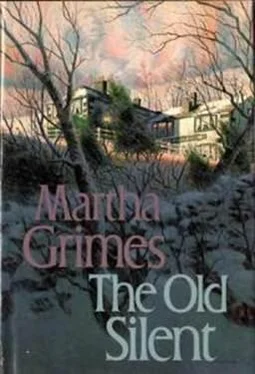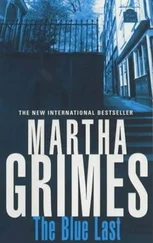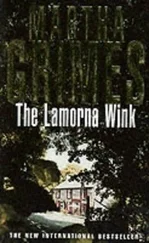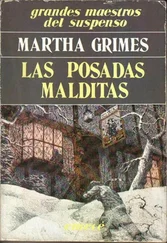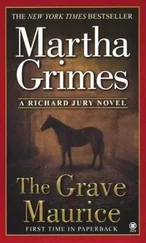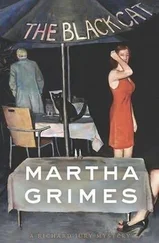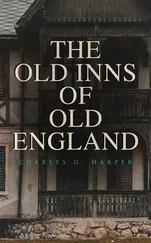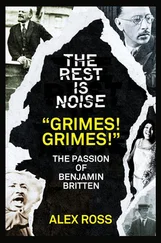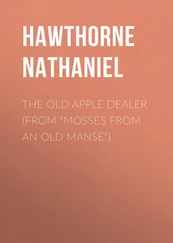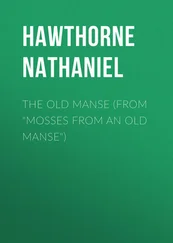Martha Grimes - The Old Silent
Здесь есть возможность читать онлайн «Martha Grimes - The Old Silent» весь текст электронной книги совершенно бесплатно (целиком полную версию без сокращений). В некоторых случаях можно слушать аудио, скачать через торрент в формате fb2 и присутствует краткое содержание. Жанр: Детектив, на английском языке. Описание произведения, (предисловие) а так же отзывы посетителей доступны на портале библиотеки ЛибКат.
- Название:The Old Silent
- Автор:
- Жанр:
- Год:неизвестен
- ISBN:нет данных
- Рейтинг книги:5 / 5. Голосов: 1
-
Избранное:Добавить в избранное
- Отзывы:
-
Ваша оценка:
- 100
- 1
- 2
- 3
- 4
- 5
The Old Silent: краткое содержание, описание и аннотация
Предлагаем к чтению аннотацию, описание, краткое содержание или предисловие (зависит от того, что написал сам автор книги «The Old Silent»). Если вы не нашли необходимую информацию о книге — напишите в комментариях, мы постараемся отыскать её.
The Old Silent — читать онлайн бесплатно полную книгу (весь текст) целиком
Ниже представлен текст книги, разбитый по страницам. Система сохранения места последней прочитанной страницы, позволяет с удобством читать онлайн бесплатно книгу «The Old Silent», без необходимости каждый раз заново искать на чём Вы остановились. Поставьте закладку, и сможете в любой момент перейти на страницу, на которой закончили чтение.
Интервал:
Закладка:

Martha Grimes
The Old Silent
The tenth book in the Richard Jury series, 1989
To
Kathy Grimes
Roy Buchanan
and my cats, Felix and Emily
who have all entered the old silence
No orchard's the worse for the wintriest storm;
But one thing about it, it mustn't get warm.
"How often already you've had to be told,
Keep cold, young orchard.
Good-bye and keep cold.
Dread fifty above more than fifty below."
I have to be gone for a season or so.
– Robert Frost
Once born you're addicted
And so you depict it
As good, but who kicked it?
– Richard Hell
Acknowledgments
When asked where I get my inspiration, I say, "I don't." This time I did.
I would like to thank some people I've never met: John Coltrane, Miles Davis, Edward Van Halen, Steve Vai, Jeff Beck, Joe Satriani, Ry Cooder, Mark Knopfler, Otis Redding, Eric Clapton, Jimmy Page, James Taylor, Yngwie J. Malmsteen, Elvis Presley, Lester Bangs, Greil Marcus, Jimi Hendrix, John McLaughlin, Stevie Ray Vaughan, Tommy Petty, and Frank Zappa. And many thanks to some people I have met: Elise Kress and the New Saint George band; Chief Superintendent Roger E. Sandell of the Norfolk Constabulary; Tony Walton of the Hammersmith Odeon; Andrew Moffitt, guitarist; and Kent Holland, who froze in line to get the tickets for Lou Reed's concert.
– and Melrose Plant especially wants to thank Lou Reed.
Part One. GOOD-BYE AND KEEP COLD
1
He had seen her earlier that day in the museum behind the parsonage. It was ten o'clock in the evening now and since he had been quite certain he wouldn't see her again, Jury couldn't help but keep raising his eyes to look over the top of his local paper to see if, even now, she had the least awareness that she was being observed.
She didn't. She sat back against the cushioned chair by the fireplace, a glass of brandy beside her on the table, largely untouched, as if she'd forgotten it along with her surroundings. Her attention had been for a while fixed (and it was the first suggestion of a smile he had seen all day) on a black cat that had appropriated the best seat in the inn, a brown leather porter's chair with a high, buttoned back. The cat's slow-blinking yellow eyes and proprietorial air seemed to say that guests could come and go, but it would remain. It had rights.
The woman, however, gave the impression that she had none. The beautifully tailored clothes, the square-cut sapphire ring, the perfectly bobbed hair notwithstanding, that was the impression of her he had got earlier-someone who had stepped down, had given over all rights and privileges.
It was a fantasy, and an absurd one at that. From the few scraps of impressions he had stitched together he was in danger of fashioning the tragic history of a queen forced to abdicate.
He tried to go back to his pint of Yorkshire bitter and the engrossing column on the sheep sale and the fund-raiser for the Brontë museum.
It had been in the museum earlier that day that he had first seen her. She was bending over one of the glass cases that protected the manuscripts. It was off-season for tourists, a chilly day after the New Year.
The only other people in the room were a waiflike woman and her balding husband with two young children, all bundled up. In their heavy coats and scarves, the girl and boy resembled the Paddington Bears they carried. The mother looked haggard, in her jeans and baggy sweater, as if she'd just finished up a week's washing; the father, a camera swinging from his shoulder, was trying to read aloud Emily Brontë's poem about a captive bird but was dissuaded by the whines of the kiddies eager to get away from these arcane manuscripts, grim portraits, scents of old leather and beeswax, into the sunnier and more aromatic environs of one of the local tearooms. "Choc and biscuits" must have been the ritual treat, for they recited it, in tandem, again and again. Chocandbiscuitschocandbiscuitschocandbiscuits . Their wheedling little voices were rising and would soon turn to shouts and tears. The mother looked round, embarrassed, and the father tried ineffectually to quiet them.
The kiddies' whining pleas seemed to awaken the woman in the cashmere coat to a sense of her surroundings, like one awakening in a strange room, one she had entered by mistake and which might harbor some undefined danger. Her expression, indeed, was similar to the one in the touching self-portrait of Branwell Brontë, imagining his own deathbed scene. She looked stricken.
She hitched the strap of the leather bag farther up her shoulder and wandered into the next room. Jury felt she was just as indifferent to the Brontë arcana as the Paddington children had been. She was bending over a case, pushing the tawny hair that fell forward behind her ear as if it blocked her view of Charlotte's narrow boots, her tiny gloves, her nightcap. But that examination was merely cursory as her hand trailed abstractedly along the wooden edge of the case.
Jury studied an old pew door taken from the box pews when the church had been demolished. It bore the legend that a certain lady of "Crook House, hath 1 sitting." They must have all had to take turns, back then.
Her slow walk round the display table in Charlotte's room might have given, to a less well-trained eye than his, the impression of absorption. In her eyes was an utter lack of it. The looks she cast here and there were uninquisitive glances from intense and intelligent eyes, but eyes that seemed looking for something else. Or someone. She appeared to be idling there, waiting.
That, he decided, was the impression: her expression preoccupied, the swift, slight turn of the head that suggested she was listening and expectant; there was the air of an assignation missed.
She had certainly not registered his presence; her glance had swept across his face as if it were another Brontë artifact, a portrait or bronze bust. If she were introduced to him five minutes later, he doubted she would remember ever having seen him. Where she stopped the longest and seemed to really look was at the display behind glass of Angria and Gondal, those imaginary kingdoms invented by Branwell.
Then she turned and walked toward the stairs.
Well, he had meant to leave anyway (Jury told himself) and followed her. He stopped on the staircase to look at the famous portrait of the sisters painted by the brother. Jury could see the dim outline, the space once full where Branwell had painted himself out.
The Paddington family had left, too, headed across the narrow street to the tearoom, the children managing somehow to swarm as if there were ten of them rather than two.
At first he thought the woman might be going for a cup of tea herself, but she simply stood on the curb, hesitating as if she were in London at a zebra crossing. The only traffic here at the top of this hill up which the pilgrims toiled was one cab idling by the tourist information center and a boy trying to urge on an intractable dray horse wearing blinders.
A chill wind whipped up the cobbled pavement, bringing with it a taste of rain, and the woman pulled up the collar of her coat so that her hair was tucked into it. Then she plunged her hands into the pockets and turned up the street. He thought she might be making for the enticing warmth of the whitewashed hotel on the corner, perhaps (he hoped, for he could use a pint of something) to the saloon bar there. But she passed it and stopped instead before a narrow house called the Children's Toy Museum. She went in.
Читать дальшеИнтервал:
Закладка:
Похожие книги на «The Old Silent»
Представляем Вашему вниманию похожие книги на «The Old Silent» списком для выбора. Мы отобрали схожую по названию и смыслу литературу в надежде предоставить читателям больше вариантов отыскать новые, интересные, ещё непрочитанные произведения.
Обсуждение, отзывы о книге «The Old Silent» и просто собственные мнения читателей. Оставьте ваши комментарии, напишите, что Вы думаете о произведении, его смысле или главных героях. Укажите что конкретно понравилось, а что нет, и почему Вы так считаете.
